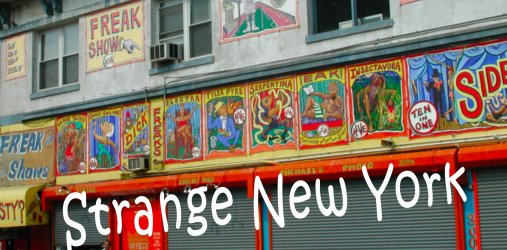Cinder block layer cake wedges and medieval goblets of rice pudding are proudly splayed as sugary food porn for hungry johns. Shimmering pink neon diners are as grotesquely American as the shiny cherry pie served on their stained dishes. Diners are where political arguments are battled, existential dilemmas are pondered, and first dates nervously stammer over cheeseburger deluxe platters.
At the Seacrest Diner in Westbury, New York, customers lingered over late night meals during the long Memorial Day weekend. Talks of European trips and summer camps were brutally shattered by five sadistic young men who raped suburbia of its saccharine complacency.
The Sutter Avenue Boys, a gang from the gritty East New York section of Brooklyn, planned a night of theft and debauchery in the Land of Milk and Honey, Long Island. For kids from Brooklyn’s mean streets, Long Island was a criminal’s marketplace where ultraviolence carried the transgressive weight of biting frosting from a cupcake.
Fun night started when James Martin, Robert Samuels, Bruce Garrison, and brothers Michael and Robert Williams began the evening’s revelry with a jaunt to the Patio Gardens Garage on Flatbush Avenue in Brooklyn. They robbed and beat the attendant and others in the garage, leaving just before midnight with over $2,400 in cash (quite a haul in 1982), eight gold rings, five gold necklaces, a portable television, and a black 1981 Cadillac. Thus began their journey to Long Island, where unsuspecting prey celebrated summer’s arrival in split-level cocoons, oblivious to nocturnal beasts who stalked nearby.
On this warm night, Fortune’s splintered wheel rolled over the Reilly family in Plainview, where a party was winding down. Gang members noticed numerous revelers through a living room window, and soon stopped three guests who were leaving. One member stayed outside with the guests while the others, armed with pistols, blackjacks, a rifle, and a sawed-off shotgun, invaded the house.
Four heavily armed creatures now stood aiming firearms at partygoers. Terrified people were ordered to strip their jeans and dresses. In this lawless house of gang rule, violent fantasies were savagely fulfilled. Guests were beaten, raped, and urinated upon. $2000 in cash was stolen, along with $6000 in jewelry and appliances. Wilding night had begun, and other dens awaited prowling.
About ten miles away, the criminals noticed the Seacrest Diner, a popular place where narrow stained-glass windows belied unholy acts that would soon transpire. Robert Williams claimed that the Seacrest Diner’s “church glass” made it a target, as “you couldn’t see in, or you couldn’t see out.”
Eighty patrons unwinding at their favorite eatery were forced to undress and have sex with one another. According to captive customers, anyone who refused sexual contact was horribly beaten. Two resistant people were shot, and a gang member raped a waitress. Local legends of forced incest and sex with strangers are still whispered throughout Long Island.
All five gang members were soon arrested and convicted of over 800 counts of attempted murder, rape, assault, and robbery. In 2002, Robert Williams was released after serving 20 years of his prison sentence. Robert Samules and James Martin were given life sentences after police connected them to a previous murder. Bruce Garrison and Michael Williams, Robert’s brother, are still in prison because they refused enrollment in a sex offender program. Michael, however, eventually enrolled in such a program, again following in his brother’s footsteps.
Nicholas Bouloukos still owns the Seacrest Diner, a stalwart example of the American business spirit. Mr. Bouloukos was horribly pistol-whipped on that terrible night, and his diner was robbed of both money and soul, but he refused to sell the place, or even change its name. And that prideful stubbornness is why the Seacrest Diner has endured.
Bouloukas claims that people still come in just to see the place. What each curious traveler seeks is a sinister touchstone; a reminder of H. Rap Brown’s adage that violence is as American as cherry pie.
skip to main |
skip to sidebar

